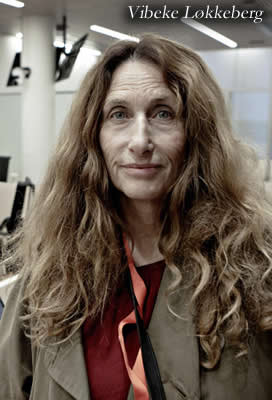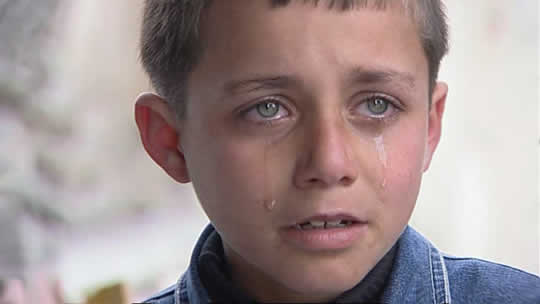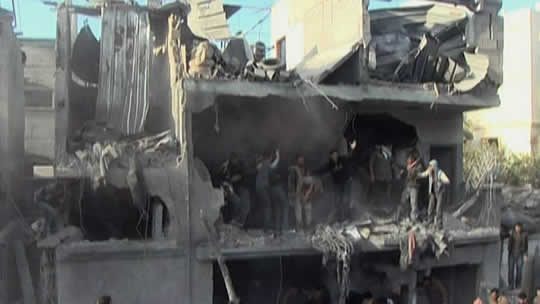 Tears of Gaza, an internationally acclaimed documentary about impact of the 2008 Gaza bombings on civilians and children, by filmmaker Vibeke Løkkeberg. After watching news reports from her home in Norway, Løkkeberg attempted to gain access to Gaza to report on events there, but discovered first-hand that international journalists were barred from entering the area. The denial of access further impelled her to report on the story, and she proceeded to gather raw footage from Palestinian cameramen and eye-witnesses living in Gaza who recorded bombings on smart phones. The result is an indelible cinematic experience and historical document that has been selected to screen at prestigious international film festivals including Toronto, Jerusalem, Abu Dhabi, Doha Tribeca, Transylvania, Melbourne, IDFA and Filmfest DC
Tears of Gaza, an internationally acclaimed documentary about impact of the 2008 Gaza bombings on civilians and children, by filmmaker Vibeke Løkkeberg. After watching news reports from her home in Norway, Løkkeberg attempted to gain access to Gaza to report on events there, but discovered first-hand that international journalists were barred from entering the area. The denial of access further impelled her to report on the story, and she proceeded to gather raw footage from Palestinian cameramen and eye-witnesses living in Gaza who recorded bombings on smart phones. The result is an indelible cinematic experience and historical document that has been selected to screen at prestigious international film festivals including Toronto, Jerusalem, Abu Dhabi, Doha Tribeca, Transylvania, Melbourne, IDFA and Filmfest DC
Bijan Tehrani: You’ve transitioned from acting to directing quite smoothly, and your documentaries touch on very important issues pertaining to life and war today. What motivated you to make Tears of Gaza?
Vibeke Løkkeberg: I was very shocked when the war broke out. All of the foreign journalists had been swept out of Gaza before the war started, and nobody was permitted to report on the war. Two Norwegian doctors came in and helped in the hospitals in Gaza. They were able to send out a few messages and pictures on their phones. I was even more shocked when I saw the dead civilians—women and children—and it dawned on me. I had this anger and I wanted to use my art to help them. So when I saw an interview with a little boy who had lost his father and brother, I said to myself, “I need to do something.” I called an organization by the name of Free Speech, and I asked them to help me to travel to Israel and try to get in there. Unfortunately, my entrance wasn’t permitted because I was planning on shooting a documentary, which was forbidden in this time of war. So I went in through the West Bank with my producer, my husband, and we learned about the Palestine situation. We went to the district and tried to come in through Egypt, but they were bombing so we could not do that. Instead we had to work with a team inside Gaza, and I got one of the children out to Norway to interview her. We followed her back and she almost didn’t get back into the Gaza Strip because of her leave, but we managed to secure her entry. 
BT: I think this is an important film because it doesn’t have an affiliation with either side; nobody can deny what is going on there.
VL: The film is made for the west really, as you can see Israeli army is using force with weapons which they deny. There were about 600 children that were killed there and that is nothing compared to what is happening now in Syria. My intention is to draw focus on the women and children because they have no voice. I wanted to give them a voice so we could identify with them. I’m hoping my film will further push the importance of understanding war and that we must fight to end war immediately. Similar to the photo that came out of the Vietnam War of the little girl running with napalm burning on her body that changed the whole sympathy towards the war against America, so of course my hope is that we could create a new movement in the world that ends all kinds of ideological violence, like in Afghanistan.
BT: It is fascinating to see your footage from inside Gaza. You provide a rare glimpse of life in one of the most dangerous regions in the world. How challenging was it to shoot your film? VL: It was very challenging because we had to smuggle out the package—it could not have been done during the day, and we needed a lot of help. All of this stuff, you will never see on television. They want a certain type of production from the world media, and you never see anyone who would make the discussion that we are creating now.
VL: It was very challenging because we had to smuggle out the package—it could not have been done during the day, and we needed a lot of help. All of this stuff, you will never see on television. They want a certain type of production from the world media, and you never see anyone who would make the discussion that we are creating now.
BT: How have audiences reacted to your film? Also, I know of a number of intellectuals and wonderful filmmakers who reside in Israel. Have you had a chance to screen the film in Israel?
VL: It was screened at the Jerusalem Film Festival, and Israel received the film very well.
BT: The film will have a U.S. release, I understand. Have you been able to take the film to people in position in the U.S. Congress?
VL: I would love to; I am trying to, and maybe you can help me. The Arab League invited us to Bristol and they saw it. They were moved, but it never came up in Bristol to politicians. In Norway, we took the film to politicians and they loved it and some politicians were excited to see the film all over the world; it has been shown at major festivals like Toronto, Abu-Dhabi, and Amsterdam, and the film has received a lot of prizes. I don’t think the distributors would dare get into the politics of the situation, though.

